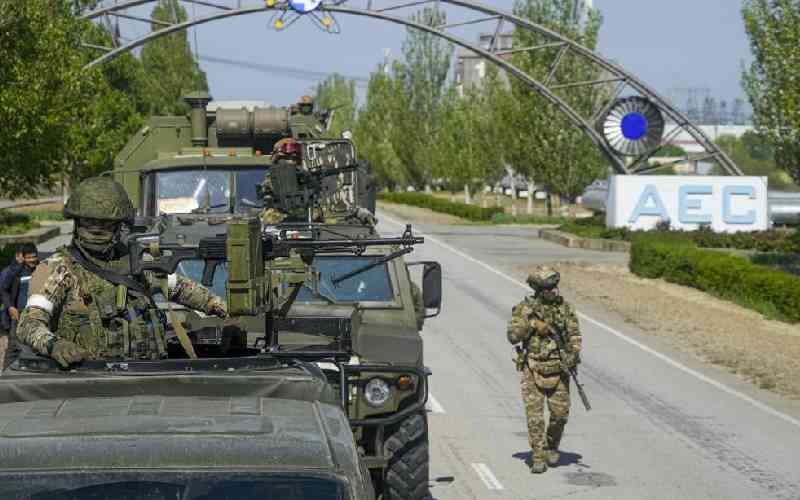×
The Standard e-Paper
Kenya’s Boldest Voice

Ukraine's and Europe's largest nuclear plant has stopped supplying Ukrainian-held territories with electricity, Kremlin-backed authorities said Saturday, as a team of inspectors from the U.N. nuclear watchdog continued their mission at the site.
The Russian-appointed city administration in Enerhodar, where the Zaporizhzhia plant is located, blamed an alleged Ukrainian shelling attack on Saturday morning, which they said had destroyed a key power line.